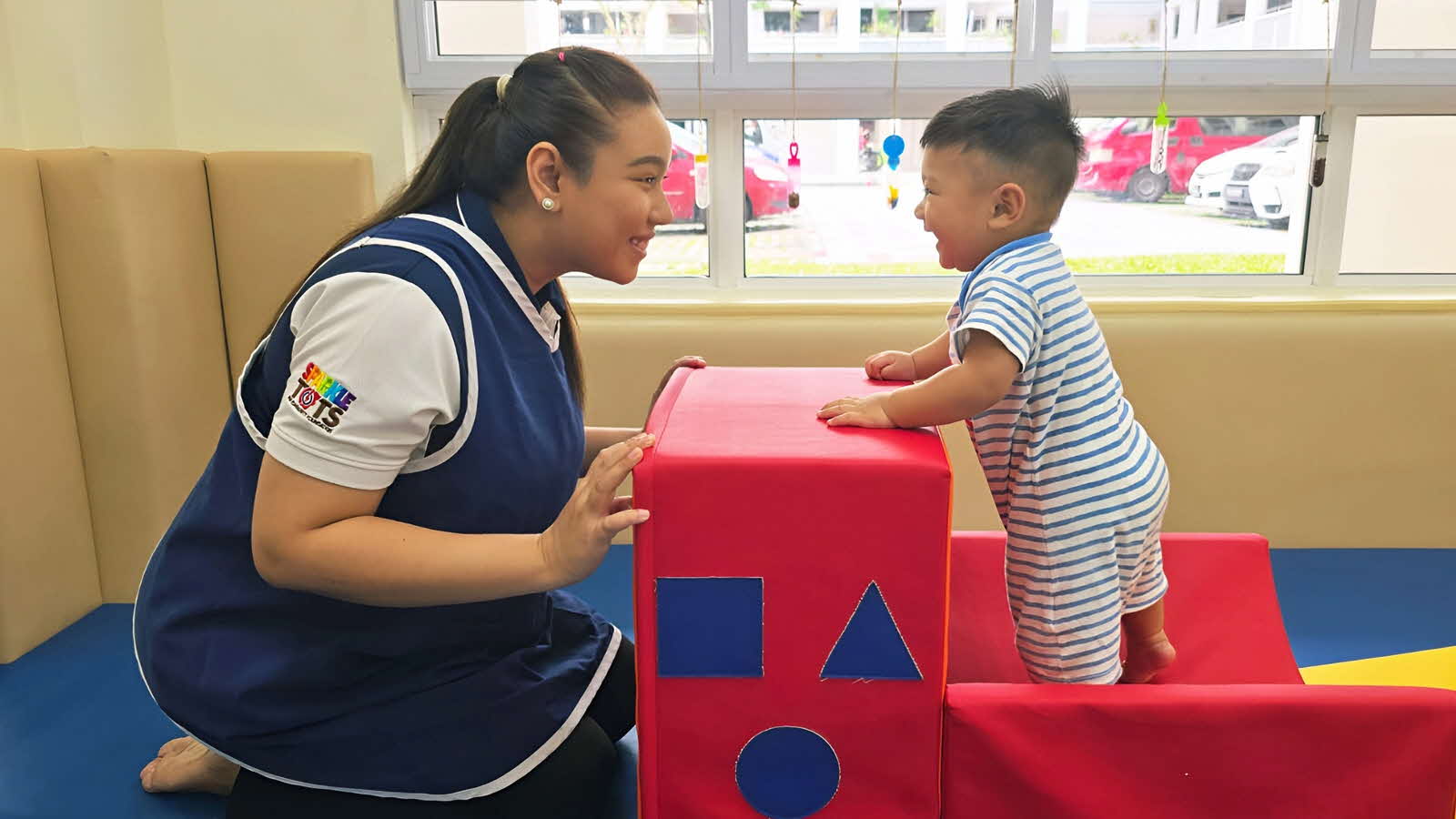ABOUT OUR EXPERT

Ms Ho is an ECDA Fellow and Senior Lead Learning Support Educator at NTUC First Campus. With extensive experience in both early childhood and early intervention, she believes that no significant learning occurs without a significant relationship. This guiding principle drives her dedication to nurturing holistic, well-rounded individuals.
Are you at your wit’s end after trying almost everything — cajoling, bribing, ignoring — to deal with your child’s challenging behaviour?
Challenging behaviours in young children include tantrums, defiance, aggression (hitting or biting), trouble following instructions, and difficulty managing emotions. While such behaviours may simply be part of a developmental phase, they could also be a reaction to something that causes the child discomfort or distress. Children may misbehave or act out because they are tired, hungry, frustrated, overwhelmed or bored.
In these situations, parents might punish or shout at their children as a last resort. But ECDA Fellow Ms Justine Ho points out that this seldom works. “Screaming and shouting might stop the behaviour temporarily, but it makes the child more anxious and fearful, hurting their sense of security,” she says. “It also weakens the trust and connection between child and parent, and leads to missed opportunities for teaching emotional regulation and problem-solving skills.”
Ms Ho adds: “There’s no one-size-fits-all strategy when it comes to challenging behaviours. Every child is unique, just like their needs. Be present, stay patient, and always lead with connection and care.”
GETTING TO THE ROOT CAUSE
Ms Ho’s advice to be patient and find out the underlying reason for a child’s behaviour resonates strongly with father of two, Mr Syah Ridzuan Bin Abdul Rahim.
“Besides the four-year age gap — Renee is six and Noah is 18 months old — my children have different temperaments and preferences,” says Mr Ridzuan, a public service officer. “Renee loves music and the arts. Noah is more physically active and prefers explorative activities like water play and manipulatives. When we read to them, Renee sits quietly and listens intently. Noah wants to hold the book and flip the pages. Renee tends to observe and assess first, while Noah is more impulsive.”
 Being four years apart, Renee and Noah exhibit different temperaments that lead them to respond differently to situations. Their parents use different strategies to deal with it.
Being four years apart, Renee and Noah exhibit different temperaments that lead them to respond differently to situations. Their parents use different strategies to deal with it.
Mr Ridzuan acknowledges that parenting can be overwhelming at times and he occasionally has to raise his voice at his children or use time-outs when they misbehave. But for the most part, he tailors his approach to each child’s individual disposition.
“As Noah is still a toddler, he is learning self-control skills,” says Mr Ridzuan. “For example, when we refuse to give in to his demands for more food after he has finished his meal, he has a meltdown. My wife and I try to be patient and redirect his attention to an activity he enjoys, like going for a walk. We try to understand why he is upset — given Noah’s explorative nature, he is likely frustrated at not being able to try different foods.”
Renee, on the other hand, is beginning to assert her independence, such as choosing and putting on her own clothes. Sometimes, her choices may not always be appropriate for the occasion or place. “When we ask Renee to change, she either refuses or gets upset,” notes Mr Ridzuan. “It goes back to us being patient and trying to understand her perspective. Since Renee can express herself well, we ask her why, explain our point of view, and try to reach a compromise.”
 Praise your child to reinforce positive behaviour, such as tidying their wardrobe.
Praise your child to reinforce positive behaviour, such as tidying their wardrobe.
SO WHAT WORKS?
Ms Ho offers some advice for addressing challenging behaviours, without resorting to shouting or punishing:
- Set clear expectations and boundaries from the outset. Children thrive when they understand the rules and know what’s coming next. When words and actions don’t align, boundaries become unclear. That’s when children learn not to take rules seriously.
- Pause for a cause. When you’re on the brink of losing your temper, take slow, deep breaths. Model the composure and self-regulation you wish to see in your child. Our responses during challenging moments teach children how to manage their own feelings. When children feel respected and supported, they are more likely to cooperate and develop resilience.
- Understand the ‘why’. Every behaviour is a form of communication. Ask yourself, “What is my child trying to tell me through their behaviour? Are they tired, hungry or overwhelmed? Are they seeking attention or avoiding a task?”. Understanding the root cause will enable you to address the behaviour more effectively. For example, if your child refuses to tidy up, they might find the instructions unclear or the task overwhelming. Break it into smaller steps and have them start on one type of items first (e.g. clothes, books).
- Give positive reinforcement. Praise your child when they demonstrate the desired behaviour or perform specific actions.
“Managing challenging behaviour requires patience and consistency,” says Ms Ho. “Remember, children are still developing self-control and emotional regulation — it’s part of growing up. With clear guidance, opportunities to build skills and positive reinforcement, they will gradually learn to manage themselves.”







